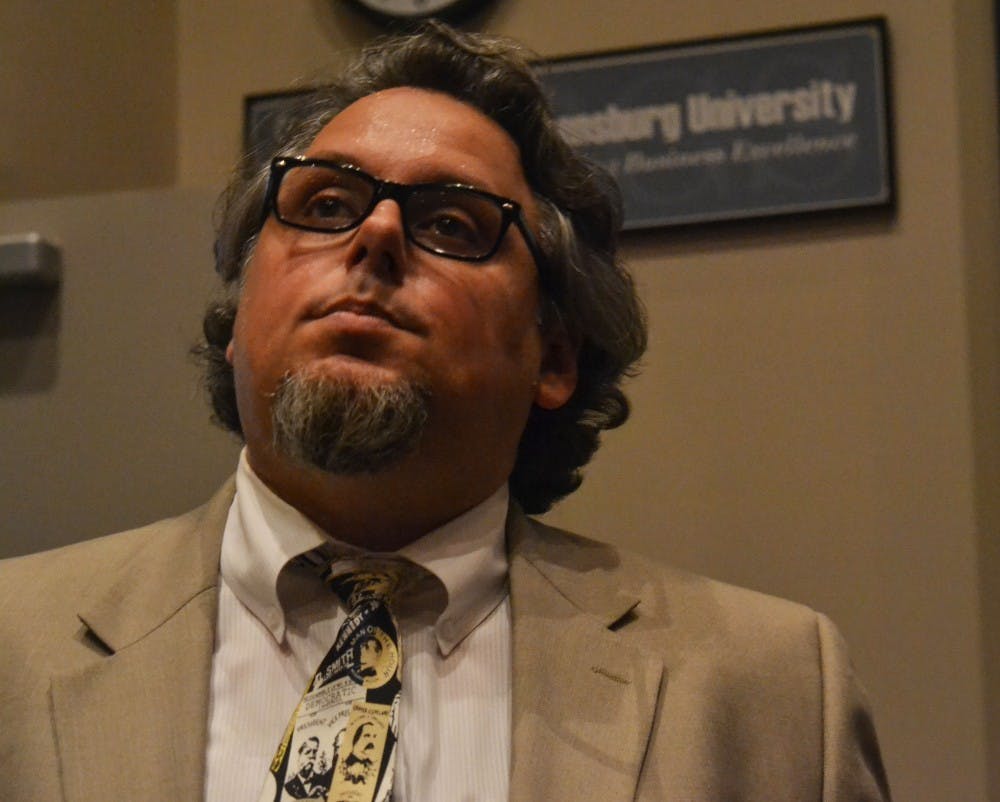Nearly 230 years after the U.S. Constitution was ratified, a lecture for Constitution Day was given at Shippensburg University to discuss the future of the Supreme Court and how its fate can greatly impact Americans.
The lecture was held Monday, Sept. 19, in SU’s Grove Forum and was open to all students and faculty.
The subject of the lecture, given by political science professor Steven Lichtman, was chosen in light of recent controversy over who will fill the vacant Supreme Court seat after the death of Justice Antonin Scalia on Feb. 13.
Lichtman began his lecture by discussing what he believes will be the outcome of November’s election.
“The genesis of today’s talk is under the assumption I am making that it will be very difficult for Donald Trump to win the next election,” Lichtman said. “It is my assumption that Hillary Clinton will be the next president of the United States and tip the majority control [in the Supreme Court] from the Republicans to the Democrats.”
Although President Barack Obama has chosen current chief judge of the United States Court of Appeals Merrick Garland to fill the position, members of Congress have refused to approve Obama’s choice because of a belief that this decision is a responsibility for the next elected president.
According to Lichtman, the United States has not had a majority liberal Supreme Court in 47 years. If Clinton wins the election and appoints Garland, Lichtman said it is almost a guarantee that the Supreme Court will seek reform of some kind.
“While it is speculative it is more than just a series of hunches — there’s no question in my mind that a liberal justice system is going to want to do something proactive,” Lichtman said. “I do think a project is coming, and the project is going to be to reform the American political process.”
Lichtman cited several examples to support this argument, specifically in regard to campaign financing, voter identification laws and the legalities of gerrymandering.
In all three cases, current laws have been upheld despite evidence that upholding these laws meant skewing the political system, according to Lichtman. However, no matter the fate of the Supreme Court, Lichtman said controversies such as these are not vanishing any time soon.
“Politics are inevitable, it’s who we are as people,” Lichtman said. “However, this system has been made rigid and inflexible and unresponsive.”




The Slate welcomes thoughtful discussion on all of our stories, but please keep comments civil and on-topic. Read our full guidelines here.